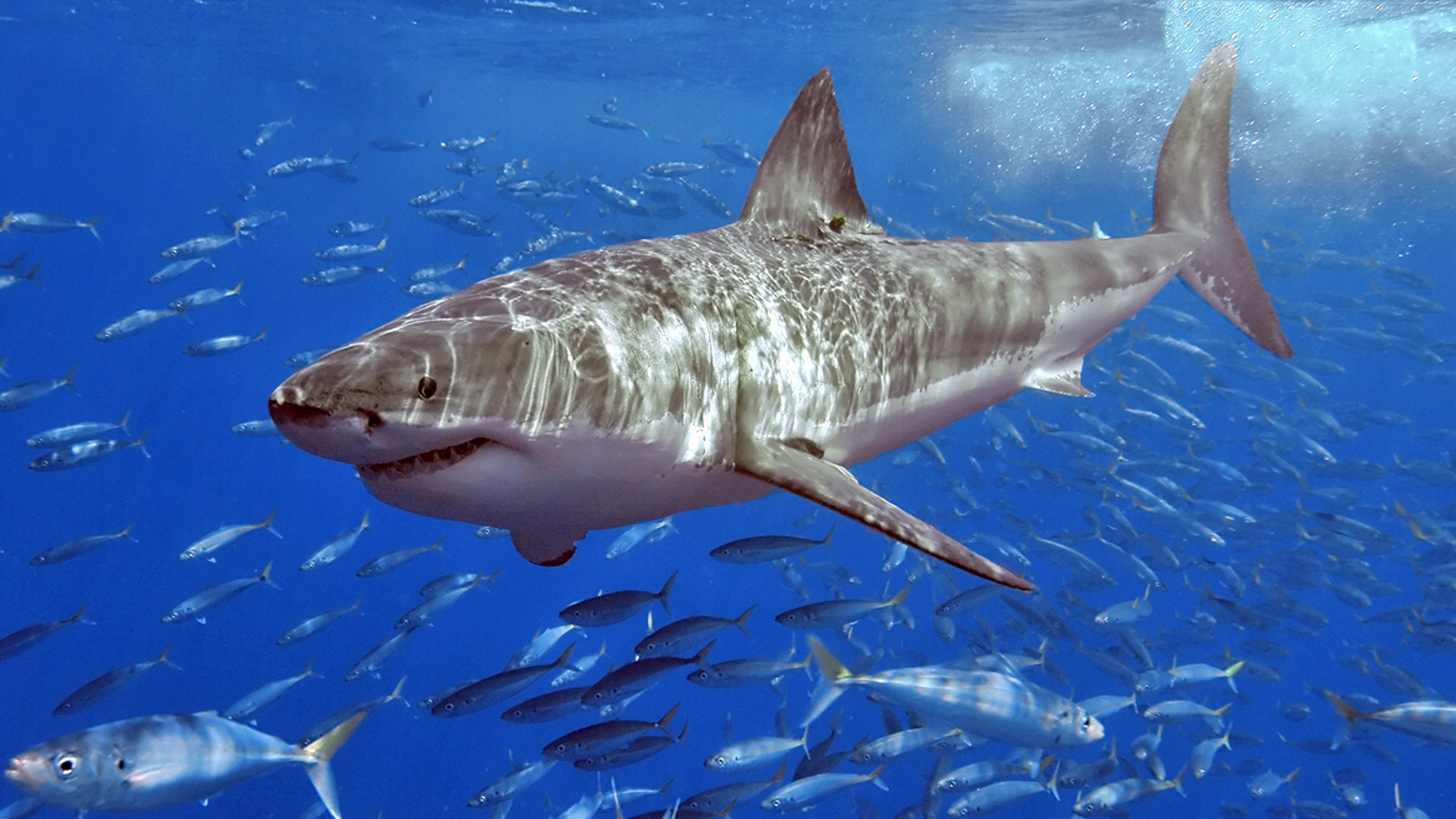Katharine, a 14-foot-long, 2,300-pound great white shark, has broken the 10,000-mile mark and is now off the coast of Cocoa Beach, Florida.
The research nonprofit tagged the shark off the coast of Cape Cod in August 2013 and has been tracking her and a number of other white sharks since. Katharine’s path shows that not all white sharks migrate randomly, but rather purposefully—for food or mating or to seek more ideal temperatures—.
“She’s basically a snowbird,” Greg Skomal, a scientist at the Massachusetts Division of Marine Fisheries, . “My guess is that her migration is mitigated by water temperature, hence the seasonal pattern.”
Katharine’s 10,717-mile saga has garnered her an impressive social media fan base. Her Twitter account, , has more than 18,000 followers. Each ping showing her location makes headlines across the Atlantic coast and gives scientists new information on the species’ unique migration patterns.
After her tagging, Katharine went south for the winter but surprised scientists by entering the Gulf of Mexico during the summer. Typically, water temperatures during summer are too warm for great whites.
“We are learning together as we look at these tracks,” Bob Hueter, director of the Center for Shark Research at Mote Marine Laboratory, told USA Today. “We’ve thrown out everything we thought we knew about the species in the Atlantic.”


